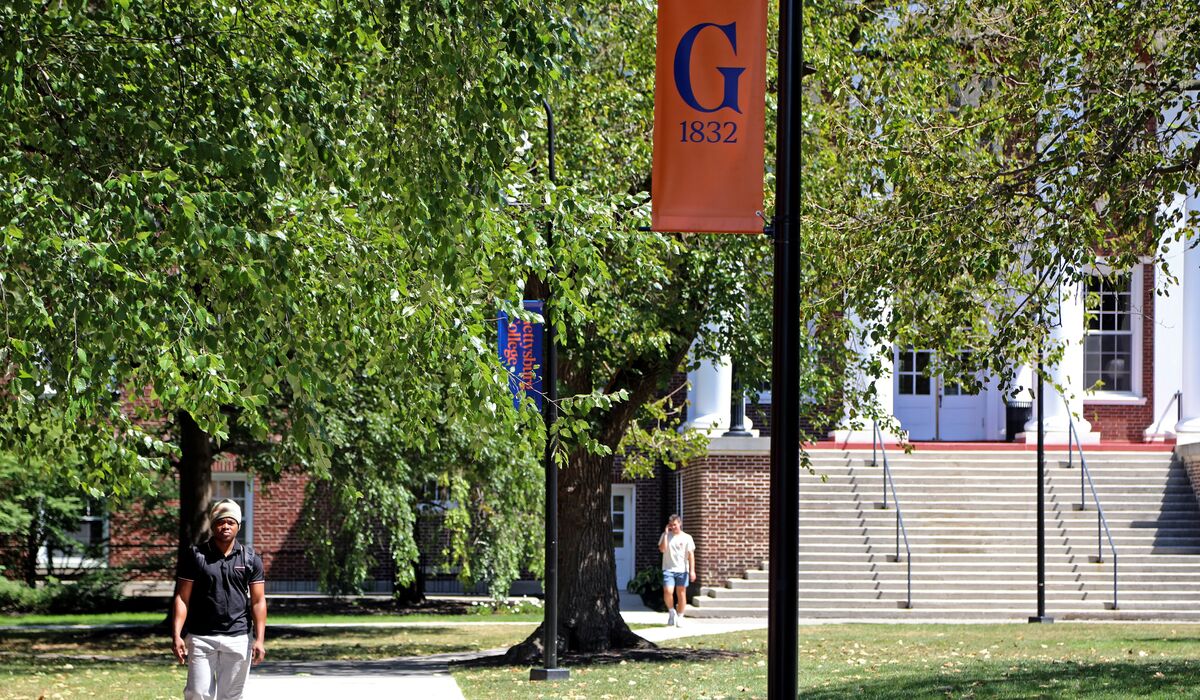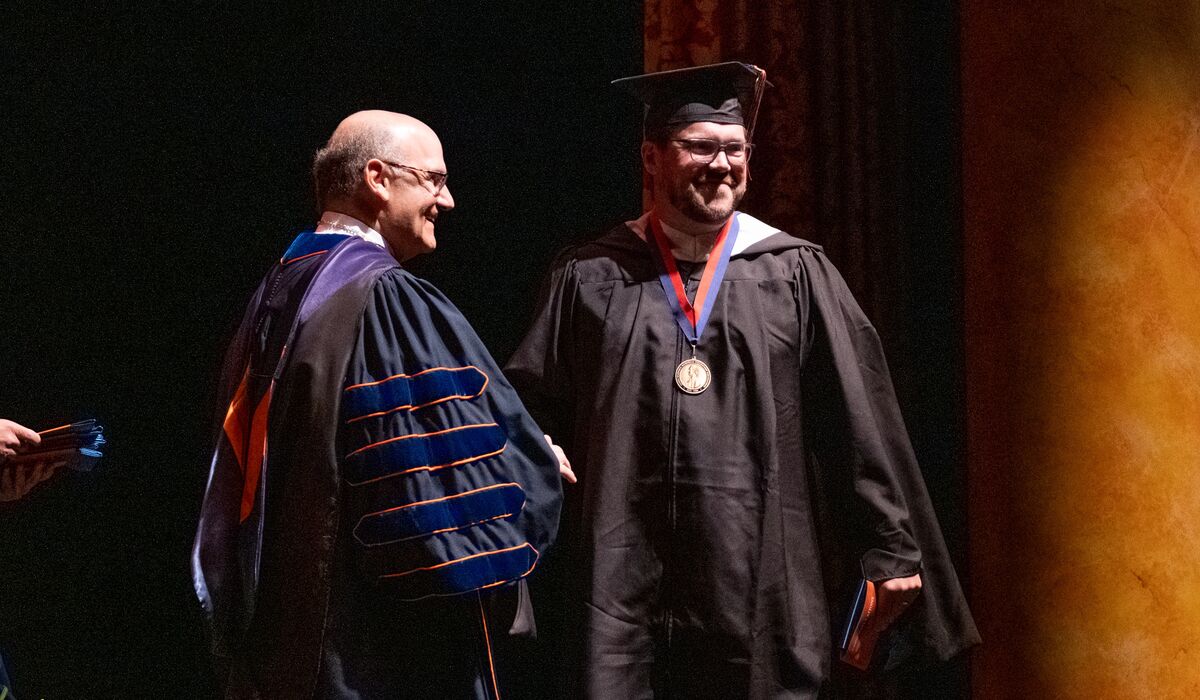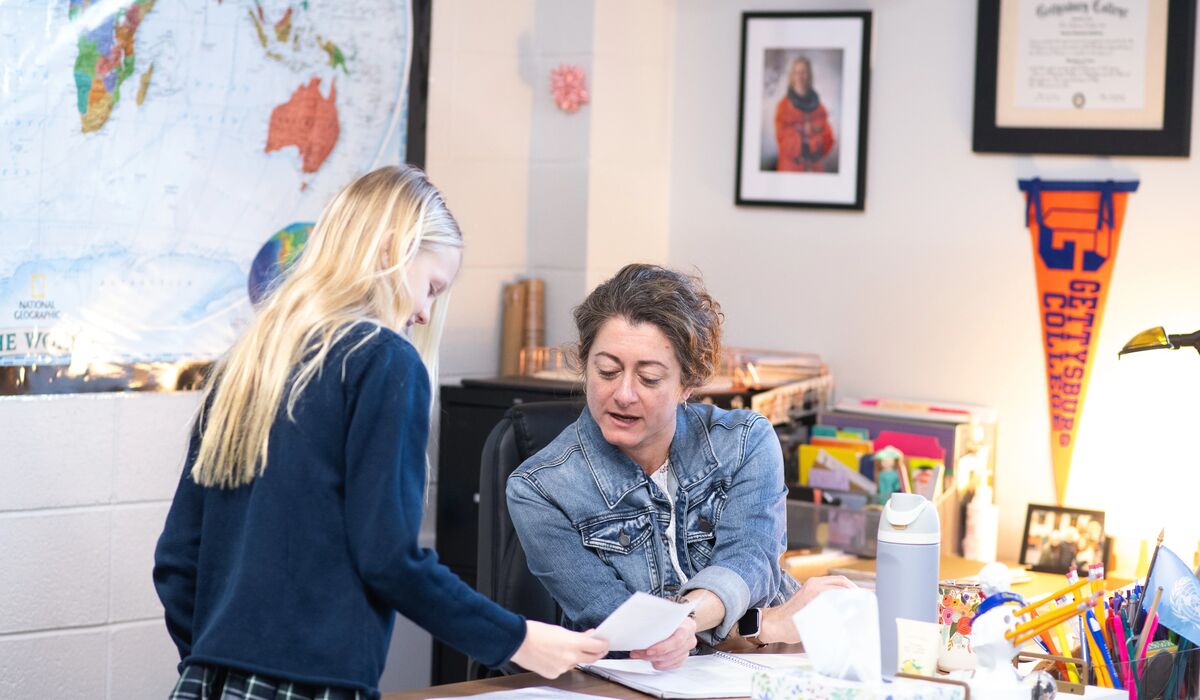Gettysburg College graduates some of the most dedicated, well-prepared young educators around—and they aren’t just making an impact in traditional classrooms. Our alumni are taking their skills into graduate programs, government and private sectors, nonprofit work, and a wide variety of other fields where teaching, leadership, and critical thinking are put to the ultimate test.
“My student teaching semester confirmed what I already knew: this is the right profession for me. I have absolutely loved my student teaching placement at Littlestown High School, and am heartbroken to leave my students so soon! This experience has absolutely helped to build my confidence as I prepare to soon have my own English classroom.” — Savannah Metzger ‘25
We are committed to giving students the most hands-on, challenging, and rewarding educational experiences Gettysburg has to offer—and we do it creatively. From immersive programs to special projects and unique opportunities, students in the Education Program are constantly challenged to grow, experiment, and explore. Check out the links below or to the left to see some of the experiences waiting for you.
Experiential Learning Opportunities

EDUC 225: Unlocking Creativity
Inside the Innovation & Creativity Lab, EDUC 225 students practice what creativity really looks like: taking risks, trying new ideas, and learning through the messy moments. As they sketch, build, and experiment, they discover how creative habits enrich their academic lives and support emotional resilience. This course helps future educators understand creativity as a mindset, not just a skill.

EDUC 115: Introduction to Educational Studies
In EDUC 115, students start their day by diving into big, sometimes uncomfortable questions about equity, access, and the purpose of schooling. These early-morning small group conversations push them to think critically and collaboratively about how to create more just educational systems. For many, this course becomes the spark that leads them into the Educational Studies minor.

EDUC 332: Young Adult Literature & Media
In EDUC 332, students take on real-world advocacy by designing campaigns to persuade community stakeholders to unban challenged books. After selecting a banned title, they create persuasive projects in the Innovation & Creativity Lab and build evidence-based arguments for expanding access. Their work culminates in a community. competition, where winning teams earn grant funds to purchase and donate banned books back into the community.

EDUC 201: Educational Psychology
In EDUC 201 Educational Psychology, small teams of students form remote, collaborative partnerships with individual K–12 teachers. Each group investigates the unique dynamics of their partner teacher’s classroom, applying research on motivation, cognition, and instructional design to real-world challenges. The project culminates in a professional presentation of evidence-based recommendations created for that teacher’s classroom context.

In the Field
Through the Literacy as Agency course, EDUC 333 students brought a school library to life at Vida Charter School. Across multiple semesters, they worked together to curate books, create systems, and design a welcoming space for young readers. Their efforts demonstrate how transformative experiential learning can be—for both future educators and the communities they serve.
Featured courses
Jump to level: All Education courses
“My student teaching experience in an 8th grade American History classroom has been one of the most exciting parts of my journey as an educator. I loved watching students’ curiosity grow as they connected major events in our nation’s past to their own lives, and being part of those “aha” moments was incredibly rewarding. Their energy, questions, and humor made every day memorable, and the experience truly confirmed my passion for working with young learners.” — Lina Hall ‘25
Alternative Pathways to Teaching
At Gettysburg, we know there’s more than one way to become an inspiring educator. While our PDE-approved teacher certification program offers a traditional route to licensure, there are also alternative pathways that allow passionate individuals to step into the classroom through different, yet equally meaningful, experiences. Teaching Residency Programs and Teaching Fellowship Programs provide opportunities to earn certification while teaching, blending hands-on classroom experience with graduate-level coursework. Residency programs typically include a full academic year working alongside a mentor teacher and completing a master’s degree, offering both professional guidance and a living stipend. Fellowship programs create a more accelerated route—beginning with an intensive summer training experience, followed by teaching full-time in high-need schools while completing certification courses. If you already hold a bachelor’s degree or are exploring new ways to make an impact through education, these programs offer alternative and rewarding paths into the profession. We encourage interested students to explore these options, reflect on what kind of teaching experience aligns with their goals, and research specific programs to understand requirements, timelines, and ongoing professional support.
Teaching Residency Programs
Residency programs offer a combination of theory and practice, and integrate a yearlong classroom apprenticeship with carefully designed sequence of master’s-level coursework. Residents receive a stipend for living experiences throughout their training year, and a subsidized master’s degree upon completion of the program. Residents spend the full academic year in an urban public school, developing under the mentorship of a veteran teacher. Over the course of the year, Residents transition from a collaborative, co-teaching role in the classroom to a lead-teaching role.
Teaching Fellowship Programs
Teaching Fellows Programs recruit professionals and recent college graduates to teach in high-need districts and charter schools for at least two years. These programs are designed specifically to provide a streamlined path into the classroom. Rather than complete a traditional teacher education program, fellows complete an intensive summer training institute, including direct classroom teaching experience, which prepares them to be successful in their first year of teaching and beyond. Fellows begin teaching full-time in the fall, while simultaneously taking certification coursework to obtain initial licensure and oftentimes, a Master of Arts in Teaching or Education.
Learn more about alternative routes to teacher certification.



